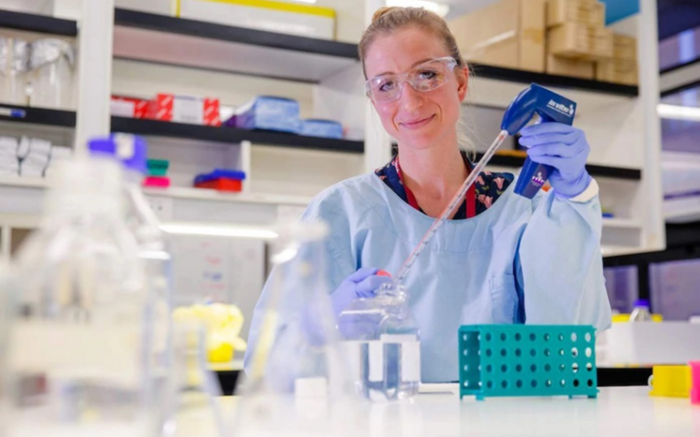SARS-CoV-2 causes a broad range of clinical symptoms, including potentially fatal acute respiratory distress syndrome (ARDS). A study published August 1 in the open access journal PLOS Biology by Kirsty Short at University of Queensland, Queensland, Australia, and colleagues suggests the nasal epithelium (the lining of the nose) of children inhibits infection and replication of the ancestral strain of the SARS-CoV-2 virus and the Delta variant, but not the Omicron variant.
Children have a lower COVID-19 infection rate and milder symptoms than adults. However, the factors driving this apparent pediatric resistance to COVID-19 infections are unknown. In order to better understand lower infection and replication of ancestral SARS-CoV-2 virus in children, researchers obtained samples of primary nasal epithelium cells (NEC) from 23 healthy children aged 2-11 and 15 healthy adults aged 19-66 in Australia. They exposed the cells of adults and children to SARS-CoV-2 and then observed the infection kinetics and antiviral responses in children compared to adults.
The researchers found that ancestral SARS-CoV-2 replicated less efficiently and was associated with a heightened antiviral response in the nasal epithelial cells of children. This lower viral replication rate was also observed with the Delta variant, but not the more recent Omicron variant. The study had several limitations however, including a small sample size, so future clinical studies will be needed to validate these preliminary findings in a larger population and to determine the role of other factors, such as antibodies in protecting children from SARS-CoV-2 infection. Additionally, pediatric protection from emerging variants has yet to be quantified.
According to the authors, “We have provided the first experimental evidence that the pediatric nasal epithelium may play an important role in reducing the susceptibility of children to SARS-CoV-2. The data strongly suggest that the nasal epithelium of children is distinct and that it may afford children some level of protection from ancestral SARS-CoV-2.”
Short adds, “We use nasal epithelial cells from children and adults to show that the ancestral SARS-CoV-2 and Delta, but not Omicron, replicate less efficiently in pediatric nasal epithelial cells.”
Reference: Zhu Y, Chew KY, Wu M, Karawita AC, McCallum G, Steele LE, et al. (2022) Ancestral SARS-CoV-2, but not Omicron, replicates less efficiently in primary pediatric nasal epithelial cells. PLoS Biol 20(8): e3001728. https://doi.org/10.1371/journal.pbio.3001728
